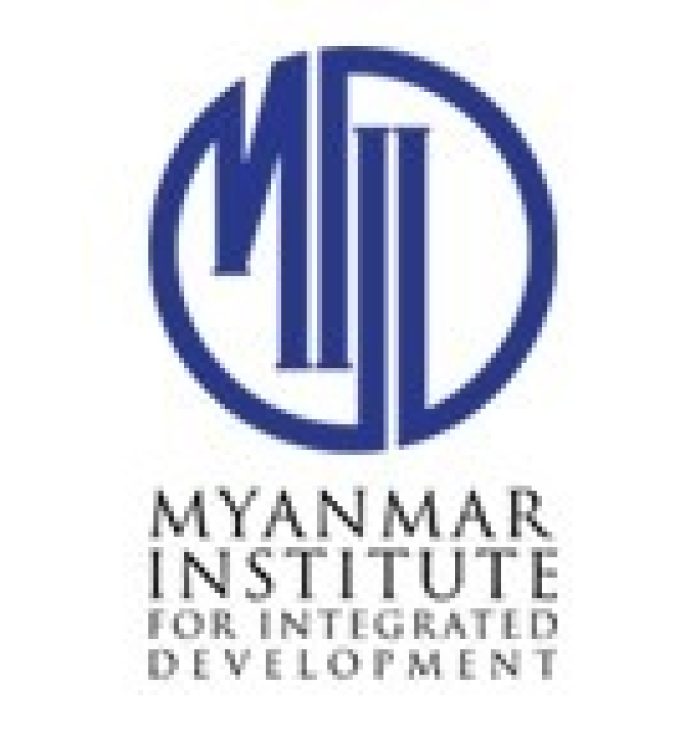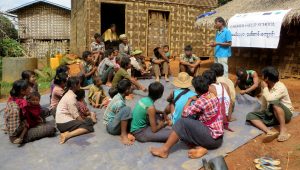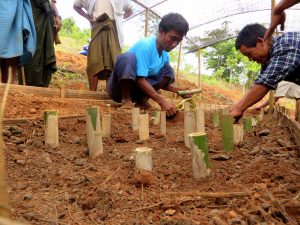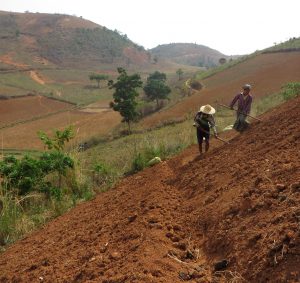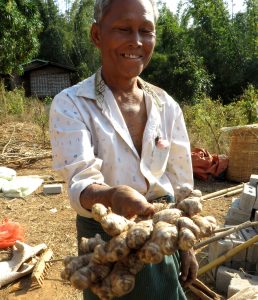Organization: Myanmar Institute for Integrated Development (MIID)
Summary: Since 2014, MIID has been collaborating with six villages for climate change adaptation and value chain development. Alongside with beneficiaries, they established seed-banks to ensure quality seed supply, land and water management campaigns to reduce topsoil loss on steep hillside farms, and realized more than 70 Farmer Field School sessions.
The project ALiSEA-funded will evaluate and document lessons learnt from MIID’s work in a Taungyoe Ethnic Community in southern Shan State, in an effort to legitimize agro-ecological approaches and spread best practices to similar communities.
Localization: 6 villages in Let Maung Gwe and Bawnin village tracts, Shan State, Myanmar.
Activities:
- Conducting interviews with project farmers and government officials.
- Writing thematic agro-ecology documents to share with stakeholders.
- Elaborating documents connecting policy to the project with suggestions to present to government stakeholders at meetings in Nyaungshwe, Kalaw and Taungyi.
- Experience sharing with the Food Security Working Group, Land Core Group and/or other public forums.
- Realization of a documentary film with collected data.
Documents:
- Agroecology case study: Addressing the challenges of upland farming in southern Shan state for climate resilience
- Agroecology case study: Supporting sustainable livelihoods and reclaiming degraded land by enhancing agroforestry in southern SHAN state
- Presentation workshop “Building Resilience of Mountain Communities: Himalica’s experience from HKH countries”
Budget granted by ALiSEA: 9,840 USD

